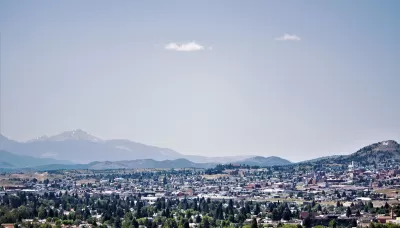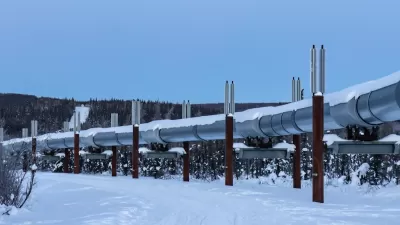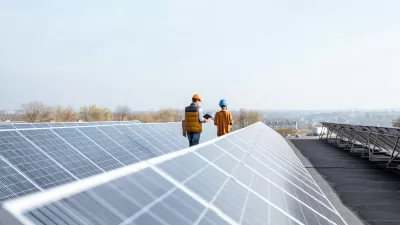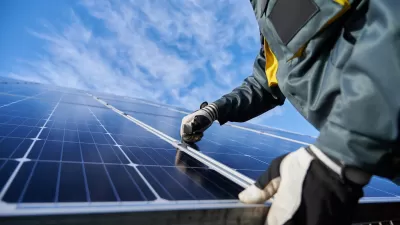A group of teens is taking on the state of Montana, claiming that the state's continued dependence on fossil fuels infringes on their constitutional rights.

In a historic move marking the first climate change case brought by young activists, "In Held v. State of Montana, 16 youth plaintiffs have sued the state over its energy policy, alleging that its heavy dependence on fossil fuel development accelerates climate change and infringes on their constitutional right to a clean and healthful environment."
As Lucas Thompson reports, a judge allowed the case to move to trial in spite of the state's objections. The complaint states that "Children are uniquely vulnerable to the consequences of the climate crisis, which harms Youth Plaintiffs’ physical and psychological health and safety, interferes with family and cultural foundations and integrity, and causes economic deprivations."
The case hinges on "environmental rights" explicitly mentioned in Montana's state constitution—one of six state constitutions to do so—which guarantee the right of Montana residents to "clean and healthful environment in Montana for present and future generations." The lawsuit joins more than 1,000 climate change-related lawsuits around the world that are attempting to hold governments and corporations responsible for the effects of human-driven climate change, writes Thompson. The case highlights the role of young activists in the climate change debate and could set an important legal precedent for future cases.
FULL STORY: Date set for first youth-led climate trial in U.S. history

Alabama: Trump Terminates Settlements for Black Communities Harmed By Raw Sewage
Trump deemed the landmark civil rights agreement “illegal DEI and environmental justice policy.”

Planetizen Federal Action Tracker
A weekly monitor of how Trump’s orders and actions are impacting planners and planning in America.

The 120 Year Old Tiny Home Villages That Sheltered San Francisco’s Earthquake Refugees
More than a century ago, San Francisco mobilized to house thousands of residents displaced by the 1906 earthquake. Could their strategy offer a model for the present?

In Both Crashes and Crime, Public Transportation is Far Safer than Driving
Contrary to popular assumptions, public transportation has far lower crash and crime rates than automobile travel. For safer communities, improve and encourage transit travel.

Report: Zoning Reforms Should Complement Nashville’s Ambitious Transit Plan
Without reform, restrictive zoning codes will limit the impact of the city’s planned transit expansion and could exclude some of the residents who depend on transit the most.

Judge Orders Release of Frozen IRA, IIJA Funding
The decision is a victory for environmental groups who charged that freezing funds for critical infrastructure and disaster response programs caused “real and irreparable harm” to communities.
Urban Design for Planners 1: Software Tools
This six-course series explores essential urban design concepts using open source software and equips planners with the tools they need to participate fully in the urban design process.
Planning for Universal Design
Learn the tools for implementing Universal Design in planning regulations.
Clanton & Associates, Inc.
Jessamine County Fiscal Court
Institute for Housing and Urban Development Studies (IHS)
City of Grandview
Harvard GSD Executive Education
Toledo-Lucas County Plan Commissions
Salt Lake City
NYU Wagner Graduate School of Public Service





























